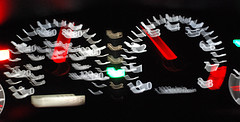In the last month, the North Dakota Supreme Court heard arguments related to the North Dakota Legislature’s 2013 decision to criminalize the refusal to take a chemical sobriety test in suspicion of drunk driving cases.
Currently in North Dakota, the refusal to take a sobriety test is grounds for a criminal charge. This refusal carries the same weight as a DUI itself and may include potential jail time.
Prior to the 2013 DUI law amendment, refusal to take a chemical test could only result in civil penalties like suspension or revocation of a driving license.
What Are Chemical Tests?
Chemical tests can capture the percentage of ethanol levels from alcohol in a person’s blood, breath or urine. Breath tests are the most common form of chemical sobriety tests but not as accurate at determining blood alcohol content as urine and blood tests.
Case Studies
In State of North Dakota vs. Danny Birchfield, Birchfield drove his vehicle into a ditch in Morton County. Birchfield was stopped by police and a preliminary breath test showed he had a blood alcohol content of 0.254% (illegal BAC Levels). Birchfield then refused to take a second chemical test that would show more accurate BAC levels. Birchfield was arrested.
In State of North Dakota vs. Jayden Washburn, Washburn was pulled over on suspicion of drunk driving for swerving on Interstate 94. Washburn was subjected to several field sobriety tests and administered a voluntary preliminary breath test, when results gave probable cause for arrest. Once detained, Washburn refused a second chemical test.
Arguments
In both case studies, the defendants stated that they had a 4th Amendment right to refuse a chemical test or that their arrest was a punishment for exercising the 4th Amendment right to refuse an unreasonable search. They also argued that the human body is entitled to privacy and that a chemical test is invasive.
In opposition, the State of North Dakota argued that driving is a privilege not a right and when a person applies for a driver’s license, they are consenting to being subjected to a chemical test in the event that they are placed under arrest for suspicion of drunk driving.
Now What?
With those arguments and more in mind, the North Dakota Supreme Court will have to decide whether to uphold the criminal penalties or not on refusing chemical sobriety tests. It could take weeks or months for the court to announce their final decision.
Because of issues like this, those who have been arrested or charged with driving under the influence should work with an experienced, knowledgeable DUI attorney. If you or someone you know needs help, contact one of the criminal law attorneys at O’Keeffe O’Brien Lyson Foss. Visit our website for more information.
Image courtesy of/ Josh Hallett



